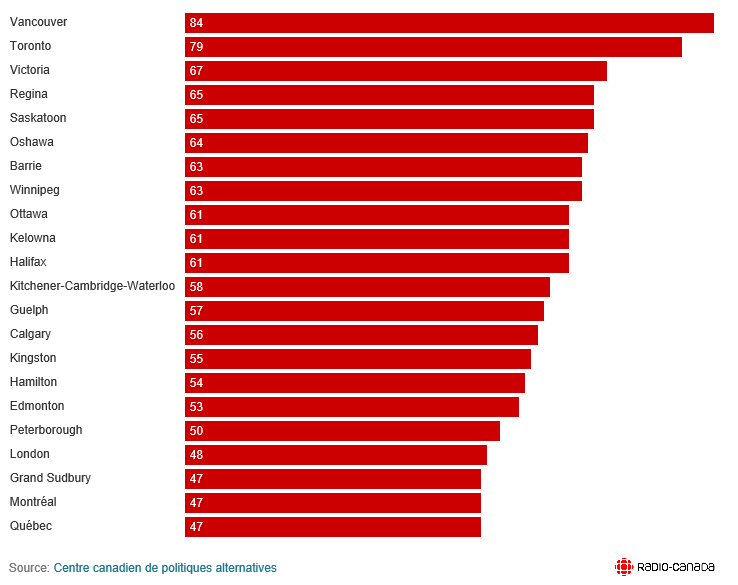Federal Minimum Wage – Shocking Facts and a Brilliant Idea
I don’t know if you’ve seen the latest Canadian Labour Congress campaign: Minimum Stats Show We Need $15 and Fairness Across Canada. In short, workers with minimum wage jobs face more difficult conditions. In addition to being underpaid, in a majority of cases, they have problems maintaining a stable schedule with reasonable hours. These people never know what wages are forthcoming each month and how to plan their budget. They have no social benefits, so do not get sick leave or any other type of leave. Their lives are marked with instability and stress. Alberta and Nova Scotia have made it their mission in the last three years to set the minimum wage at $15 per hour.
These statistics have not had much impact. That may be because we do not know how to deal with this problem. According to a Radio-Canada piece, experts found a study highlighting the fact that a minimum wage does not allow for rental of a downtown apartment in the majority Canadian cities. Wait! That is the case with full-time employment. Thus, students are not taken into account. With part-time work as well as school hours, good luck surviving! According to SRC:
In Vancouver, a minimum wage employee would have to work 84 hours a week to afford a one-bedroom rental apartment in the city. In Toronto, 79 hours would be required for the same privilege, according to the study. Victoria, Calgary and Ottawa are among cities where the gap between the minimum wage and the average rent is the widest.
In Quebec, three cities are an exception, that is, affordable and in line with the cost of living. People working 40h/week at $15/hour can, theoretically, rent a one-bedroom apartment in Sherbrooke, Trois-Rivières and the Saguenay. The Canadian Labour Congress states in its campaign:
In 2015, about 25 percent of all workers in Canada made $15/hour or less. That’s more than four million workers. This varies significantly by province, from 18 percent of all employees in Alberta, to 38 percent of all employees in PEI.
Reproduced here is a chart published by Radio-Canada illustrating the minimum wage per hour one would have to make in order to afford a one-bedroom apartment.
Many of you will be shocked by these numbers: $84/hr would allow one to rent a one-bedroom apartment in downtown Vancouver. One would need a high enough salary, financial help, or a room-mate in order to afford to live in most Canadian centres. Otherwise, debts will mount quickly. To make these calculations, the Canadian Centre for Policy Alternatives (CCPA) used October 2018 figures provided by Statistics Canada and the Canada Mortgage and Housing Corporation:
David Green, a professor at the University of British Columbia, reviewed existing data on minimum wages and concluded that “the potential impact [for employment] on young adults and adult workers of raising the minimum wage to $15/hr is negligible to zero.” He also found that increasing the minimum wage in Canada reduces the rate of employee turnover. Thus, raising the minimum wage helps to create more stable jobs.
Campaign: Minimum Stats Show We need $15 and Fairness Across Canada
First and foremost, many organizations in favour of the $15 minimum wage movement are also advocating for improvements to employment standards in their campaigns. Some people will think that this increase will cause the closure of small local shops but, on the contrary, as a café owner in downtown Edmonton put it for the SRC article:
“If people have more money to spend, they’ll spend it locally,” she says. “We opened just before the increase last October with five employees and since then we’ve almost doubled our staff.” — Lynsae Moon of the Nook Café
Raising minimum wages would allow more Canadians to live in apartments and have stable employment. We must fight growing inequality and precarious work, and support the movement to raise the minimum wage to $15/hr.

